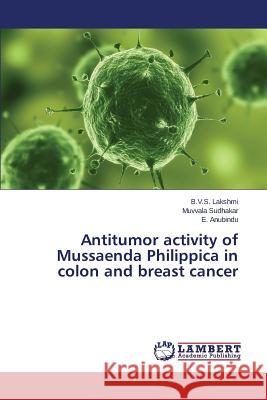Antitumor activity of Mussaenda Philippica in colon and breast cancer » książka
Antitumor activity of Mussaenda Philippica in colon and breast cancer
ISBN-13: 9783659527180 / Angielski / Miękka / 2014 / 124 str.
The causes of cancer are diverse, complex, and only partially understood. Many things are known to increase the risk of cancer, including tobacco use, dietary factors, certain infections, exposure to radiation, lack of physical activity, obesity, and environmental pollutants.These factors can directly damage genes or combine with existing genetic faults within cells to cause cancerous mutations.Many cancers could be prevented by not smoking, eating more vegetables, fruits and whole grains, eating less meat and refined carbohydrates, maintaining a healthy weight, exercising, minimizing sunlight exposure, and being vaccinated against some infectious diseases. Objective: Plant-based diet supplements help the prevention and therapy of several kinds of cancer because they contain micronutrients, which exhibit chemopreventive and chemotherapeutic activities. In present study antitumor and antioxidant activity of MUSSAENDA PHILIPPICA was evaluated against the MCF-7 and Caco2 cell lines induced breast and colon cancer in mice.
The causes of cancer are diverse, complex, and only partially understood. Many things are known to increase the risk of cancer, including tobacco use, dietary factors, certain infections, exposure to radiation, lack of physical activity, obesity, and environmental pollutants.These factors can directly damage genes or combine with existing genetic faults within cells to cause cancerous mutations.Many cancers could be prevented by not smoking, eating more vegetables, fruits and whole grains, eating less meat and refined carbohydrates, maintaining a healthy weight, exercising, minimizing sunlight exposure, and being vaccinated against some infectious diseases. Objective: Plant-based diet supplements help the prevention and therapy of several kinds of cancer because they contain micronutrients, which exhibit chemopreventive and chemotherapeutic activities. In present study antitumor and antioxidant activity of MUSSAENDA PHILIPPICA was evaluated against the MCF-7 and Caco2 cell lines induced breast and colon cancer in mice.











